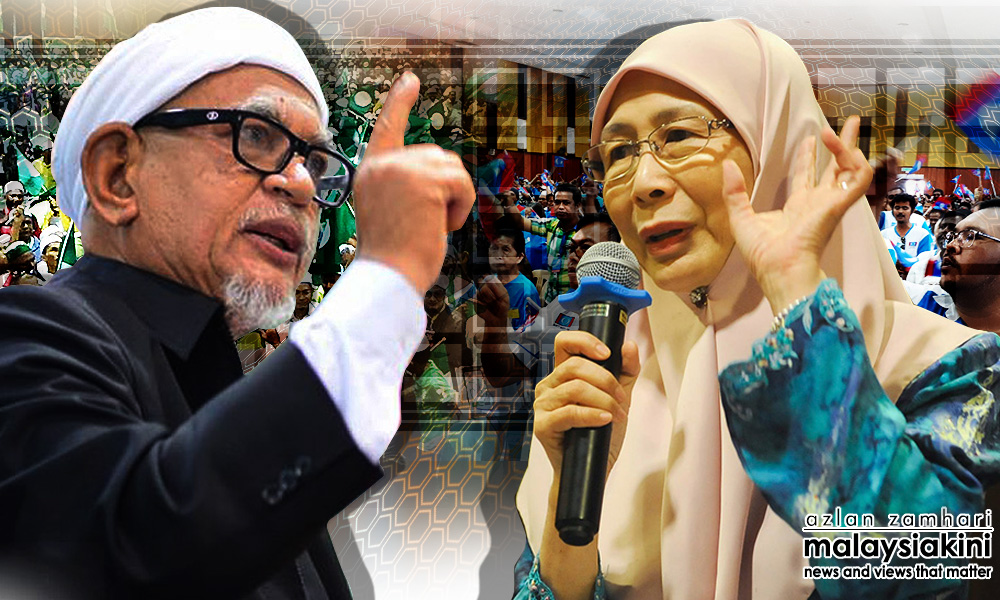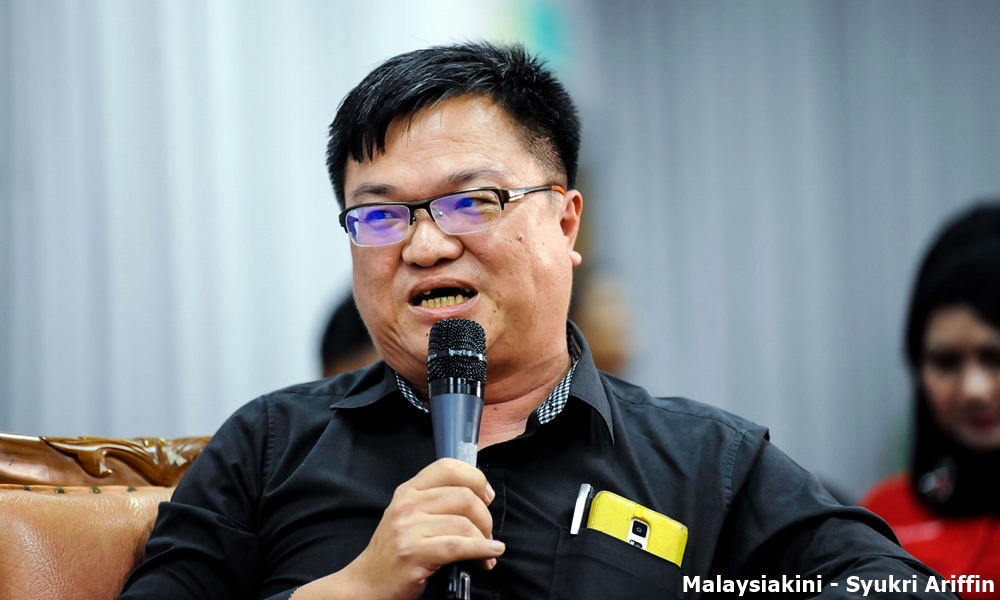
Opposition Leader Dr Wan Azizah Wan Ismail may have dimmed Pakatan Harapan’s chances when she spoke on hudud in an interview with Al Jazeera, political analyst Khoo Kay Peng said.
Khoo said Wan Azizah responses to questions indicated she did not discuss her position on the hudud with the Harapan council, and that the council does not have a unanimous position on the topic, which is expected to be a key election issue.
In the interview, Wan Azizah was asked to make a declaration that if she were to become the prime minister, there would be "no hudud, no stoning and no amputation".
Her response was that she can make a declaration that "hudud is not implemented unless all the things that are supposed to be in line of justice are there".
Asked if this meant that there was a situation where stoning would be acceptable in Malaysia, Wan Azizah replied: "Not in the near future."
Khoo said assurances that stoning and amputations would not take place in Malaysia are also insufficient in articulating Harapan’s stand on the Islamic penal code which goes beyond such penalties.
"It is about its principles and legal processes, some of which are not in line with civil laws."
Watershed election for Muslims
However, Wan Azizah was possibly struggling to stress that hudud is not a priority as it could isolate more conservative Muslim voters in a crucial general election, he said.
"Moving forward, she must tell why Malaysia is better by being inclusive rather than being ethnoreligious-centric (and) how Harapan's agenda for Malays is better than Barisan Nasional's.
"GE14 is a watershed election for Muslims. It's also about the choice of direction to choose and the questions to answer, whether it is good governance, a clean government, multiculturalism and capacity-building versus Muslim unity, hudud and Islamic state," Khoo said.
 Penang Institute’s Wong Chin Huat (photo) believes there is now an opportunity for PKR to reclaim discussions about Islam beyond the confines of hudud.
Penang Institute’s Wong Chin Huat (photo) believes there is now an opportunity for PKR to reclaim discussions about Islam beyond the confines of hudud.
Wong said there are two discourses around hudud among Muslims - one that sees the implementation of syariah penal codes as Muslim nationalism to restore Muslim dominance, and another that speaks of universal justice in Islam.
In the latter discourse, he said, the discussion is on Islam being a means of justice and how implementation of syariah must be fair to both believers and non-believers.
The discourse on Muslim dominance is the shade that has been taken in discussions on the Syariah Courts (Criminal Jurisdiction) Act amendments within PAS, he said.
Like Khoo, Wong believes Wan Azizah was veering to the side of Muslim nationalism 'in obvious calculation to avoid attacks from that camp'.
Lose-lose situation
However, her calculation to play safe may be counter-productive on both ends.
"On one hand, it will further affirm PAS' propagation of the first paradigm (of Muslim dominance), further restricting the narrative space in the debates of syariah and painting PKR and Harapan into a corner.
"On the other hand, it will directly go against the increasing objection from East Malaysians against Umno-PAS' agenda of syariah expansion, besides traditional objection from minorities and moderate Muslims in West Malaysia," Wong said.
As a result, he added, Sabah and Sarawak PKR may be forced to contradict with their party president's statement to stand by their constituencies.
Trying to pander to the more conservative side will be a losing game for PKR.
“After all, for the hardcore Islamists, PKR's sympathy to the first paradigm (of Muslim dominance) will always be pale compared to PAS," Wong said.
As such, he urged PKR to expand its narrative on Islam for universal justice through scholars like Siddiq Fadzil and Wan Ji Wan Hussin, who is also a PKR Youth leader.
"PKR needs to be conscious of significant changes in our country's development and move with time."
Not the right answers
While her remarks on the hudud may have caused unease among voters on the amendments to Act 355 moved by PAS, University of Tasmania's Asia Institute director James Chin believes it will not cause rifts within Harapan.
"DAP is okay as Harapan's official stand is no hudud until Malaysia is ready and other problems like corruption are dealt with."
Even so, Chin, too believes there was much wanting in Wan Azizah's answers - if only for the fact that as a senior politician, she did not quite understand her audience.
In the interview, Wan Azizah said that as a Muslim, hudud must be accepted as God's law, but that implementation was a different matter altogether.
She also cited how in the past, PKR had allied with PAS because the latter assured that implementation of hudud was not a priority, and there were other more pressing matters to deal with, such as education and eradication of poverty.
"What she did not make clear was that hudud is not a priority. Her main argument that, as a Muslim she cannot reject hudud, will not be accepted by the Western audience.
"It is better for her to say there is no consensus among Islamic scholars on hudud and how to implement it in the 21st Century. This is what the Western audience wants to hear,” Chin said.- Mkini


No comments:
Post a Comment
Note: Only a member of this blog may post a comment.